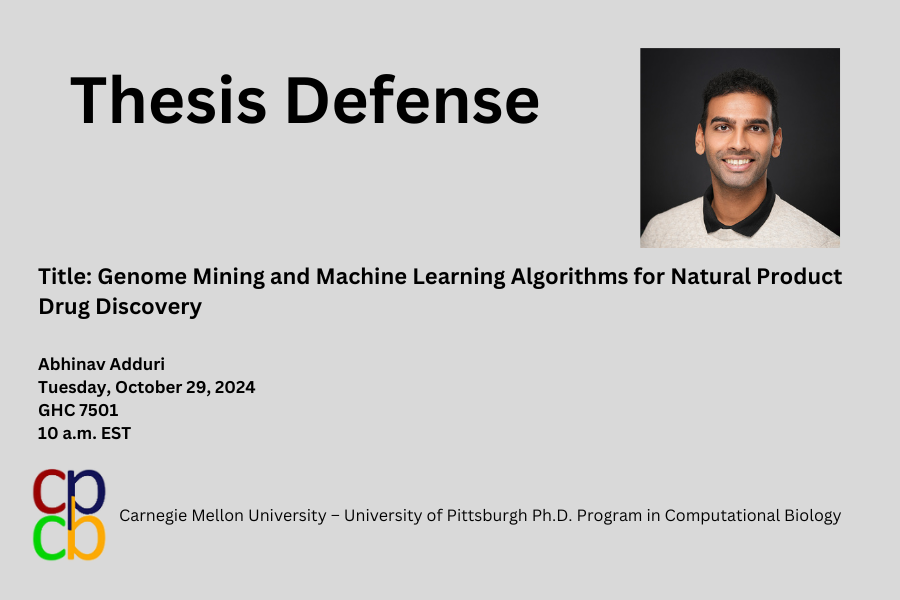
Thesis Defense: Abhinav Adduri | October 29, 2024 | 10 a.m.
Title: "Genome Mining and Machine Learning Algorithms for Natural Product Drug Discovery"
Abhinav Adduri
Tuesday, October 29, 2024
10 a.m. EST
GHC 7501
Committee: Hosein Mohimani, Chair, CMU Louis Felix Nothias, Univer
Abstract: Natural products have long been a rich source of diverse antimicrobials and clinically effective drug candidates. Non-ribosomal peptides (NRPs), polyketides (PKs), and NRP-PK hybrids are three classes of natural products that display a broad range of bioactivities, including antibiotic, antifungal, anticancer, and immunosuppressa
In this thesis, I introduce a suite of algorithms and machine learning models that predict NRPs, PKs, and NRP-PK hybrids from their microbial biosynthetic gene clusters (BGCs) of origin. Our resulting Seq2X methods significantly outperform the previous state-of-the-ar
Unlike previous approaches, MASPR uniquely offers zero-shot classification for novel substrate